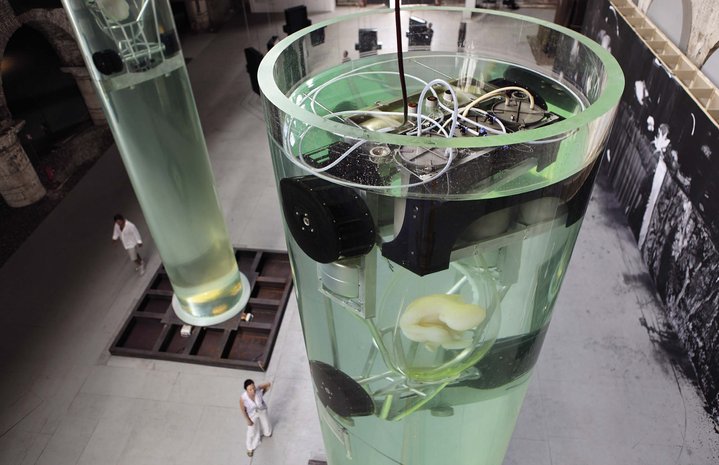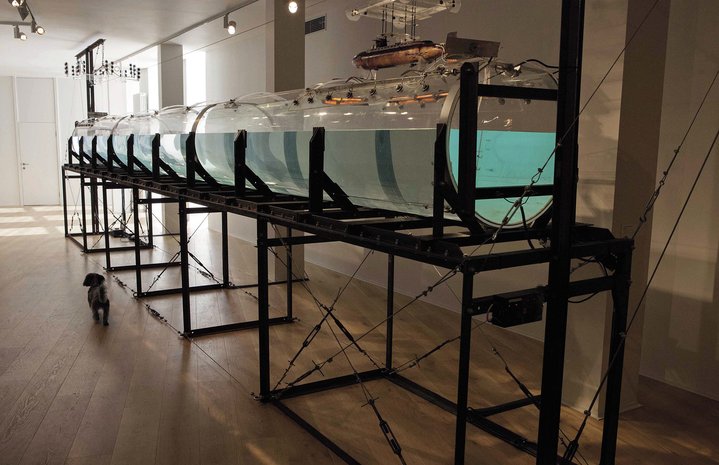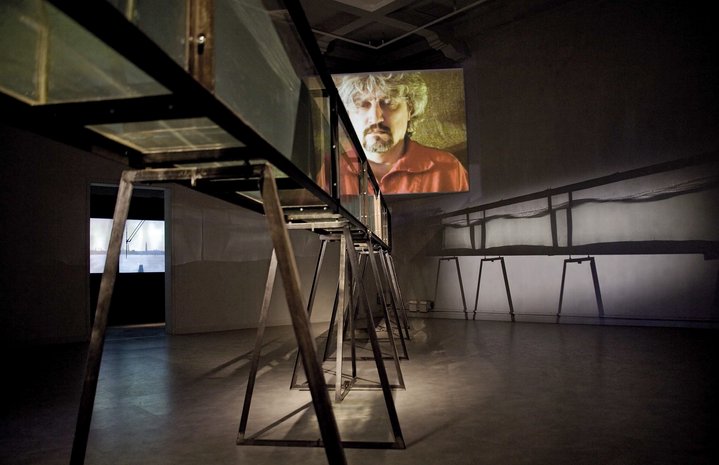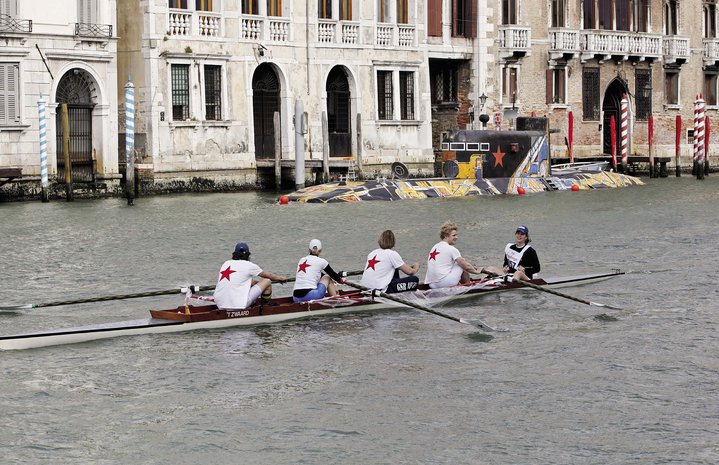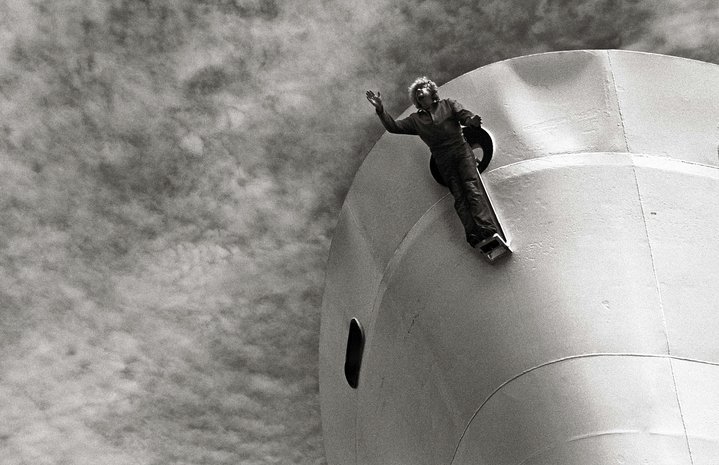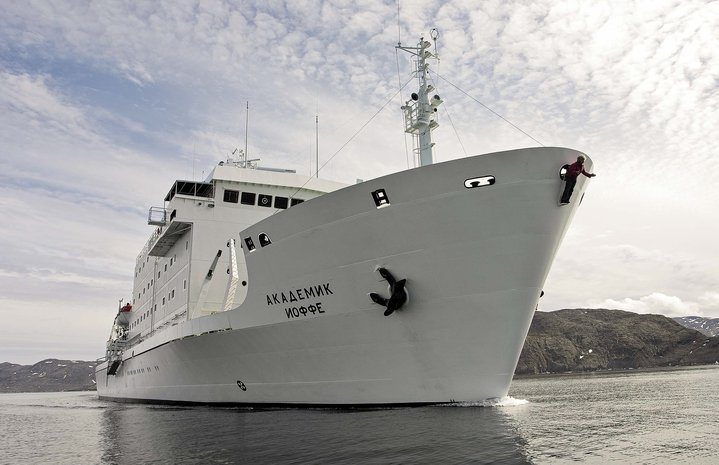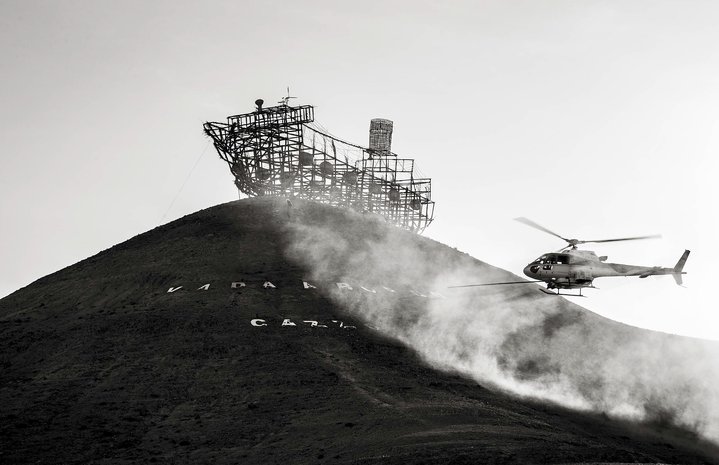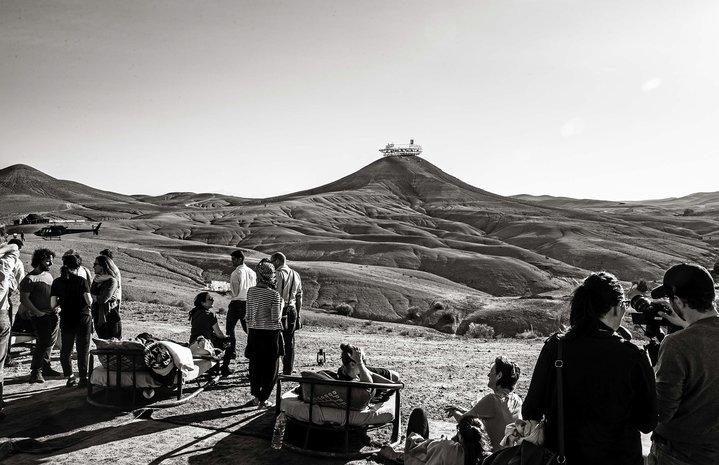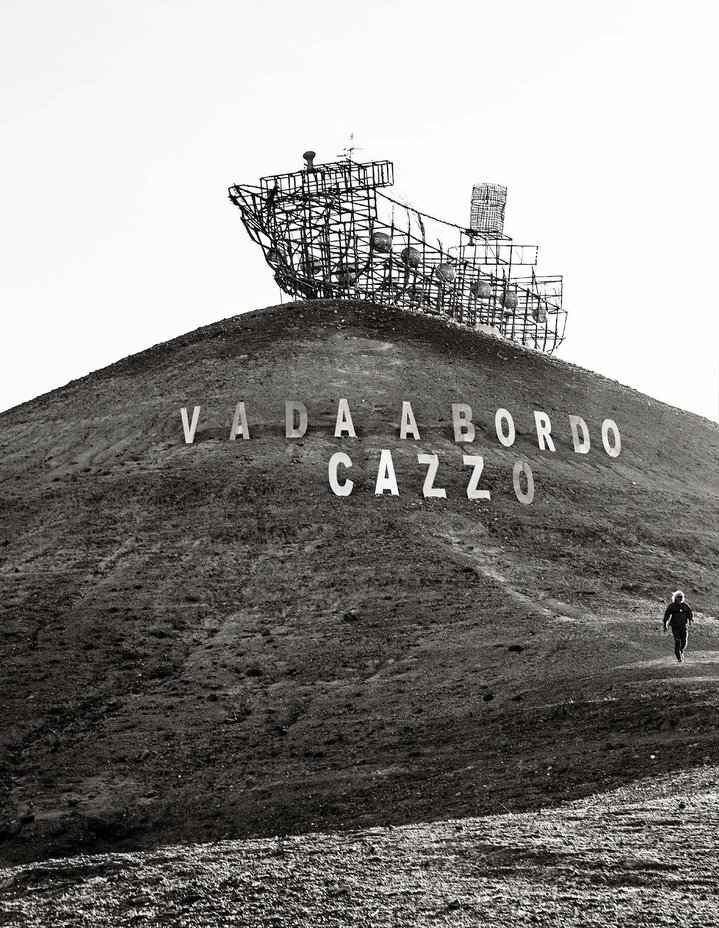Alexander Ponomarev. Windtruvian man, 2014–2015
Alexander Ponomarev: a leap into literature
A man fascinated by high seas and snowy wilderness, Ponomarev often performs his risky art endeavours far away from the eyes of critics and spectators. A new book by Silvia Burini and Giuseppe Barbieri called ‘Alexander Ponomarev. The Second Voyage’, recently published by Rizzoli, brings his seafaring adventures into the limelight.
Looking at the photographs in this extravaganza of a book, I regret not accepting a generous, heartfelt, invitation to join Alexander Ponomarev (b.1957) on a journey to the Arctic or the Antarctic (it was late at night, so I can’t remember which). It would have been the visual party of my life. But, as a man cursed with some semblance of Anglo-Saxon logic, I stayed put in my London Hobbit hole. I am quite relieved though not to have been invited to write an essay for this book. Distinguished writers seem like giddy passengers to the seductive power of the Ponomarev experience. The only acceptable accompanying text to the pictures of the leading actor playing Leonardo, Yves Klein and Joseph Beuys, would be untamed fiction, free as the air in the windproofs of the Windtruvian Man, or his yellow patchwork submarine cruising up the Grand Canal at Bellini time at the Gritti or, yet again, its periscopes peering up from the Moskva’s dark waters at the gilded domes of the Cathedral of Christ the Saviour.
This book makes no attempt to balance text and image. The ‘Voice of the Wilderness’ is not exegeted by Biblical prose, but with photographs and sketches of a skeleton on the top of a hill on the edge of the Moroccan desert. It was made for the 2014 Marrakech Biennale and its absurd position makes the viewer question what he or she is seeing. Is it the remains of a Mammoth, a whale, or a ship, miles out of water? Is it the Ark? I am not going to attempt an answer.
Ponomarev was the driving force behind his own Biennale, ‘The Antarctic Biennale’, which started with the brilliant premise of finding somewhere beyond national borders, in which to host an international event on neutral terms. The artificial creation of nations is probably the most significant impediment to global co-operation to solve the world’s problems, so the idea was inspirational.
It is quite difficult to focus on one work, or one event, in his kaleidoscope of a career. One picture keeps on recurring when one thinks of Ponomarev’s work. It is from the Baffin Action, where he strapped himself to a ship equipped to break its way through the ice of the waters the front at the other end of the world from his Biennale, ‘The Arctic’. He makes himself into a bow figurehead, but for all students of 20th century art, it has strong echoes of Yves Klein’s ‘Leap into the Void’ from October 1960. One can read this negatively, particularly as Ponomarev in his ‘Voice in the Wilderness’ actually records some of the conversation between the salvage team, Captain de Falco of the Italian Coast Guards to Captain Francesco Schettino, whose boat Costa Concordia sunk with 32 casualties of the coast of Italy in 2012. Ponomarev carved the words on the side the hill: “GET THE FUCK ON BOARD!” From the viewpoint of the Arctic or the Antarctica, those become a very strong message. When one sees all the icebergs melting at both ends of the world, one knows it is time for humankind to act together and to leap into the creation of a new world.






